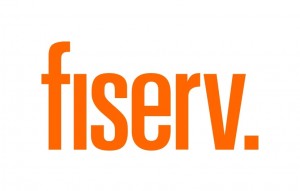The surge in popularity for peer-to-peer payments is making itself felt in the realm of holiday gifting, helping to erode a longstanding cultural taboo against giving cash during the annual gift-giving season.
Gift transactions rose 47.2% in December 2017 over the monthly average for the previous August through October, according to numbers released this week by Fiserv Inc. for its Popmoney P2P service. The increase in November last year over the same baseline was 9.6%. The Brookfield, Wis.-based company, which also processes for the Zelle P2P network, did not track similar numbers for Zelle since the service had only started up a few months earlier.
For Popmomey, at any rate, last year’s holiday-season spike was no anomaly. “We’ve seen that year-over-year. That translates into actual transaction growth,” Jeff McCrory, director of product marketing for Fiserv’s digital banking group, tells Digital Transactions News. To be sure they were counting cash gifts accurately, analysts checked for memo fields containing words like “gift,” “happy holidays,” “teacher,” and “coach.” They ruled out fields containing “birthday.”
The results seem to confirm that electronic cash gifts, far from suffering from the reputation for crassness or thoughtlessness that once clung to gifts of currency, are increasingly acceptable and contributing significantly to fourth-quarter P2P network volumes, McCrory says. “Transactions are critical,” he says. “That’s how we drive revenue. We watch it every month for Popmoney and for Zelle.”

More widely, the holiday results indicate that in general, “people are just more comfortable sending P2P payments digitally,” McCrory says. To be sure, Zelle has enjoyed fast adoption since its official launch in June 2017. The Scottsdale, Ariz.-based network, which is owned by many of the nation’s biggest banks, reported in October its third-quarter volume totaled $32 billion, up 13% over the second quarter, on 116 million transactions, a 16% increase. The network reported it had registered 75 million total tokens, that is, email addresses or mobile numbers, up 10% quarter-over-quarter.
The apparent enthusiasm for holiday gift-giving may also belie concerns about the impact of fraud reports on consumer behavior. News emerged last week, for example, that PayPal Holdings Inc. struggled earlier this year with a surge in fraud losses on its popular Venmo P2P service.
Moreover, just this week came news of a massive data breach in the reservation system operated by the Starwood unit of the Marriott International Inc. hotel chain. To some extent, the drumbeat of news about such intrusions may have rendered consumers less sensitive to the threat of fraud. “Unfortunately, consumers have become aware of data breaches and fraud,” notes McCrory.





